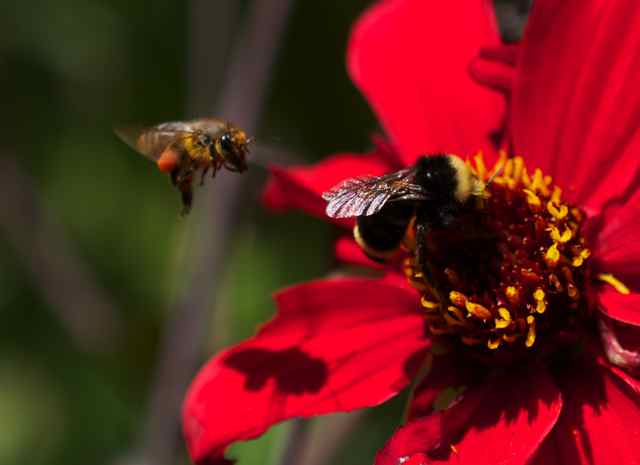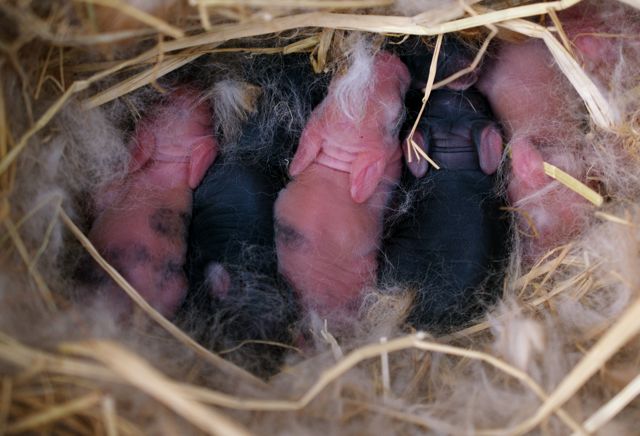Institute of Urban Homesteading
Newsletter
August 2014
Hello Party People
I hope your gardens are growing well and you are enjoying the bounty of summer fruit, whether it is from your own backyard or from the market. Here in my garden the tomatoes are finally coming on and I am about to enjoy the second flush of raspberries, plus figs and asian pears. This months newsletter is dedicated to meat and veggies--something for everyone in the family Whether or not you are a meat eater, I think most agree that the trend towards small scale ethical meat farming is a move in the right direction, both for the animals and the environment. Understanding the terms used and how to purchase meat directly from a farmer can be daunting--this we hope to demystify below.
Classes this month include Natural Dying with Deepa (this weekend! register quick!), Urban Goat Farming, Fermentation, Canning Extravaganza and Raising Rabbits as well as our inaugural meat share class, The Whole Pig. We are working on the Fall schedule of classes. Additions and changes will be announced in the September newsletter.
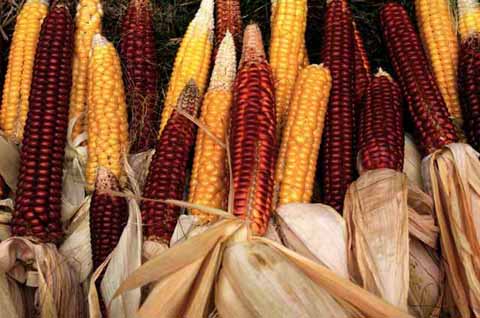
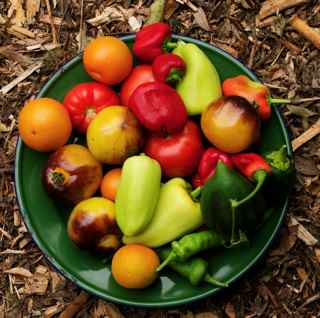
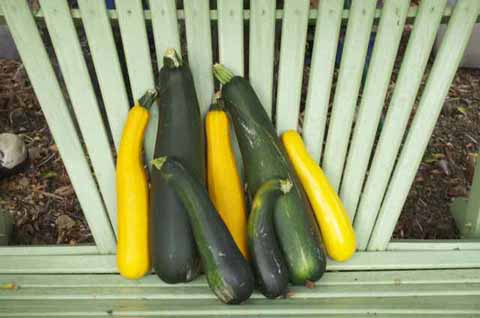
flour corn, ruby-gold cascade ~ tomatoes and peppers ~ the problem with zucchini
Plant Now for A Bountiful Fall Harvest
For those of us committed to starting our annual vegetable from seed August is the time to get a move on starting the Fall garden. Although much is said about year round gardening, in the Bay Area, truth be told, nothing really grows here in December or January--plants in the ground simply maintain until spring. The two options for planting include seeding so that plants can be harvested in October and November (count back using the maturation days on the seed packet) or getting cool weather crops established so that they mature and harvest in early early spring. This latter technique is somewhat iffy for plants like broccoli or cauliflower which sometimes make it through the darkest coldest part of the year only to offer the most stunted versions of their crop. Cool weather crops such as broccoli, kale, collards, peas and lettuce should be seeded now for harvest before december, or no later than the end of October for an early spring harvest. During this extra dry seasopn, giving extra water to your starts once in the ground will be vital to establishing a good root system and immune foundation for your fall planting.
Farm to Table: Meat Share Economics
Meat clubs, meat shares meat CSA? These are all ways to buy quality sustainable meat on subscription directly from a farmer. Although there has been an explosion of of these options in the last few years, the best deal will always be purchasing a whole animal. In the case of a cow, even at the going price of around $4/lb. for the whole animal, the cost can run in the thousands and a place to store all that meat can seem daunting. The obvious solution is to go in on the purchase with friends. Even then, for the uninitiated the cost per pound economics can be confusing. Here's how it works:
The farmer sells you the animal per pound based on the "hanging weight" of the animal. This is the weight of the carcass after slaughter, skinning & gutting and before breaking the animal down into cuts. The actual take home weight after fat and bones have been trimmed and some natural shrinkage due to aging can be as much as 28% less than the hanging weight for beef or 15% for pork. On top of the per pound cost for the meat, you will pay a harvest fee ( for slaughtering the animal) and a cut and wrap fee (for portioning and packaging your meat into its proper cuts).
Let's say the total cost of a 400 pound cow at $3.75/pound, plus $115 slaughter fee and a $75 cut and wrap fee is $1790. The take home weight of the cow after aging and packing might be around 288 pounds. So the actual price per pound ($1790 ÷ 228) is $6.21. Round up for gas costs and the resulting $6.50/lb. is still not bad for grass fed beef. Of course you pay the same per pound for tri tip or stew bones, so the trick is to now get together with your friends to transport that meat home and split it into fair portions. Another way to save is to skip the cut and wrap fee and break down the animal yourself.
Wanna learn more?
Join us for The Whole Pig-- a meat share class on August 13. We'll be breaking down a whole suckling pig and splitting it up for take home.
Deadline to participate is August 6th! East Bay Express Blog About the Class
Don't like pork? We'll announce the second event in the series, The Whole Lamb in next month's newsletter.
Farm to Table: Meat Grading
While feed lots and animal cruelty are still the norm in the meat industry, the demand for animal welfare is on the rise as meat consumers become increasingly aware of the great differences in the quality of life of the animals they are eating as well as the coincident quality of the meat and cost to the environment. A number of grading & certification systems are popping up, some that demand a high standard for certification and some that simply rate and allow the consumer to choose. Animal Welfare Approved is an example of the former, with incredibly high standard for the best life for meat animals. The Global Animal Partnership has a 5 point system used by corporate healthfood mogul Whole Foods. Beyond these grading systems there are also a dozen terms to sort through that can baffle the consumer. Here are links to learn more
Guide to Meat terminology from the Humane Society
Animal Welfare Approved
Global Animal Partnership
Just for fun and because we can really go over the top on this stuff, I am reposting this great episode of Portlandia on the topic of sustainable meat practices. Enjoy!
Day of the Dead Coordinators and Altar Artists Sought
Have you enjoyed our Day of the Dead celebration in the past? This year it falls on a Saturday and will be the best ever,
We need a few people to get involved on a core level for it to happen. We have tiny honoraria available to pay people to take on the following roles
Kitchen Crew Chief This involves coordinating the food and food serving, gathering and setting up tent and tables, compost and trash, managing server volunteers and a host of other details
Altar Crew Chief. This includes organizing transport and set up of the original altar and all the materials associated with it and coordinating with any other altar artists.
Altar Artists. We are interested in seeing the number of altars grow. If you have an idea for an altar or installation and the capacity to design, build and transoprt it to the park, we'd love to offer you a bit of gas money.
We appreciate folks who can come to meetings, show up on time and who like to take leadership and responsibility.
Short Takes
We won! Thanks for voting for us for the Best of the East Bay!
EveryDay Cheesemaking. Our book event was a success! Couldn't make it? Purchase the book here.
Classes
Changes
DIY Householding Tile Setting rescheduled for October 4th
Saturday August 2, 2014 1pm-4:30m
Knife Sharpening & Tool Care
Sunday August 3, 2014 2pm-6pm
Colors From Nature: Natural Dyes from Local Plants
Sunday August 3, 2014 11am-2pm
Urban Goat Farming
Saturday August 9, 2014 1pm-5pm
Canning Extravaganza
Sunday August 10, 2014 1pm-4pm
Cheesemaking 102: Brie Butter & Blue
Wednesday August 13, 2014 6:30-9:30pm
The Whole Pig: Pig Buy and Butchery
Deadline to register is August 6
Saturday August 16, 2014 1pm-5pm
Fermentation: The Works!
Sunday August 17, 2014 10am-1pm
Raising Rabbits For Fun, Fur, Fertilizer and Food
